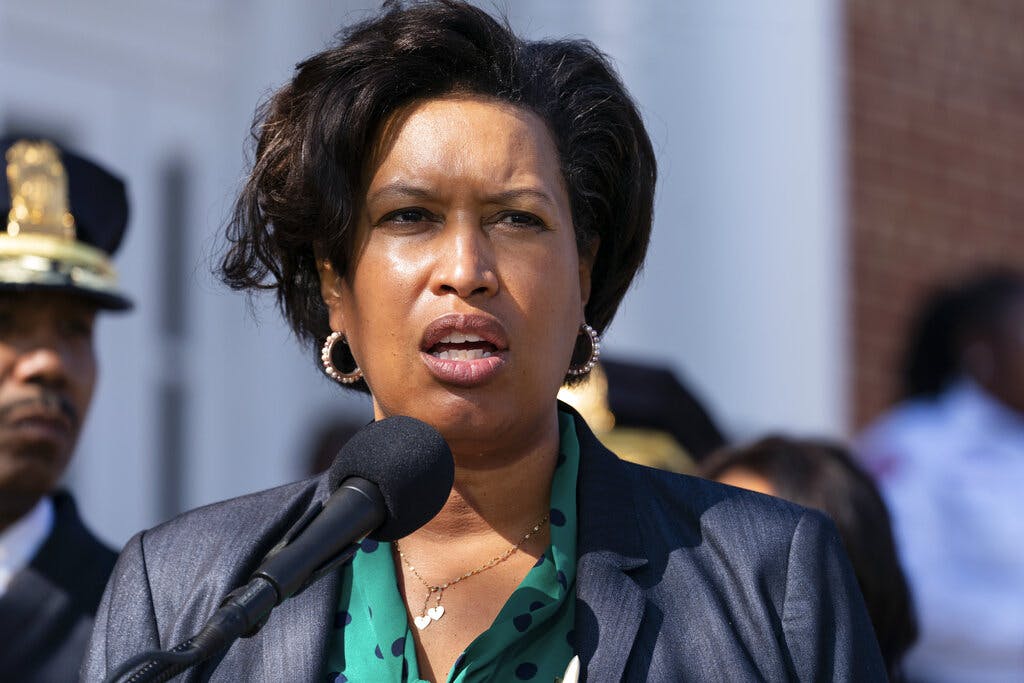Conflict Brewing in Congress Over Bill To Permit Voting by Non-Citizens in the Columbia District
City council votes to move forward with the measure.

A conflict is being teed up between the District of Columbia government and the Congress over a bill that would allow non-citizen residents of the district to vote in its local elections.
Washington D.C. has become the latest municipality to vote to allow non-citizen residents to vote in local elections, following cities in Maryland, Vermont, and most recently, New York City, though New York’s law was struck down in state court.
Proponents of the new law, such as Councilwoman Brianne Nadeau, argue that residents “who have made the District their permanent home should have a say in who represents them in their local government.”
“Every day, as elected officials, we are making decisions about affordable housing, education, human services and city services that impact the daily lives of all residents,” Ms. Nadeau said.
The Local Resident Voting Rights Amendment Act of 2022 will allow non-citizen residents of the district to vote for mayor, D.C. Council, board of education, neighborhood commissions, and attorney general in the district, if it is allowed to go into effect.
In Washington D.C., however, Congress has the final say over what is allowed to become law. Though the District of Columbia Home Rule Act of 1973 delegated legislative power over the district to the council, Congress still has the final say, as described by the Constitution.
Article I, Section Eight of the constitution says that Congress “shall have the sole and exclusive government of what is called the federal city,” though they did delegate legislative power to the district in 1973.
After the bill passes the council, the mayor of Washington D.C., Muriel Bowser, has a chance to review the law and if she approves of it, passing it to Congress for a 30-day review period.
During the period, Congress has the opportunity to pass a joint resolution disapproving of the law and preventing it from taking effect. Such a resolution requires a two-thirds vote in both the House and the Senate.
While the 13-member council voted to advance the bill, and Ms. Bowser has expressed support and even introduced similar legislation in the past, some members of congress are taking issue.
The congressman from South Carolina’s third district, Jeff Duncan, has been a vocal opponent of such measures and has introduced legislation alongside Senator Rubio to outlaw non-citizen voting nationally.
The Protecting Our Democracy by Preventing Foreign Citizens from Voting Act would cut federal funds for state and local governments who allow non-citizen voting in elections.
Mr. Duncan argues that allowing non-citizens to vote “dilutes the value of American citizenship and threatens our national sovereignty” and advocates for limiting the right to vote in any election to only citizens.
“Foreign nationals, including certain illegal immigrants, should not be able to elect the local government in our Nation’s Capital,” he tells the Sun. “Non-citizen voting will only erode confidence in our electoral process and disenfranchise our own citizens.”
Though Mr. Duncan declined to comment on this bill’s chances to get past the Congressional hurdle, it appears unlikely to pass the current Democratically controlled House and Senate.
The odds of Congress passing a joint resolution to prevent the district’s law are likely even longer, given the two thirds requirement.
Although the bill looks unlikely to pass in this Congress, the legislation could be reintroduced next year and may have better odds to pass depending on the outcome of this year’s midterms.
If passed, it would mark the first time that Congress has legislated on the issue since the Illegal Immigration Reform and Immigrant Responsibility Act of 1996, when Congress officially outlawed non-citizen voting in federal elections.

